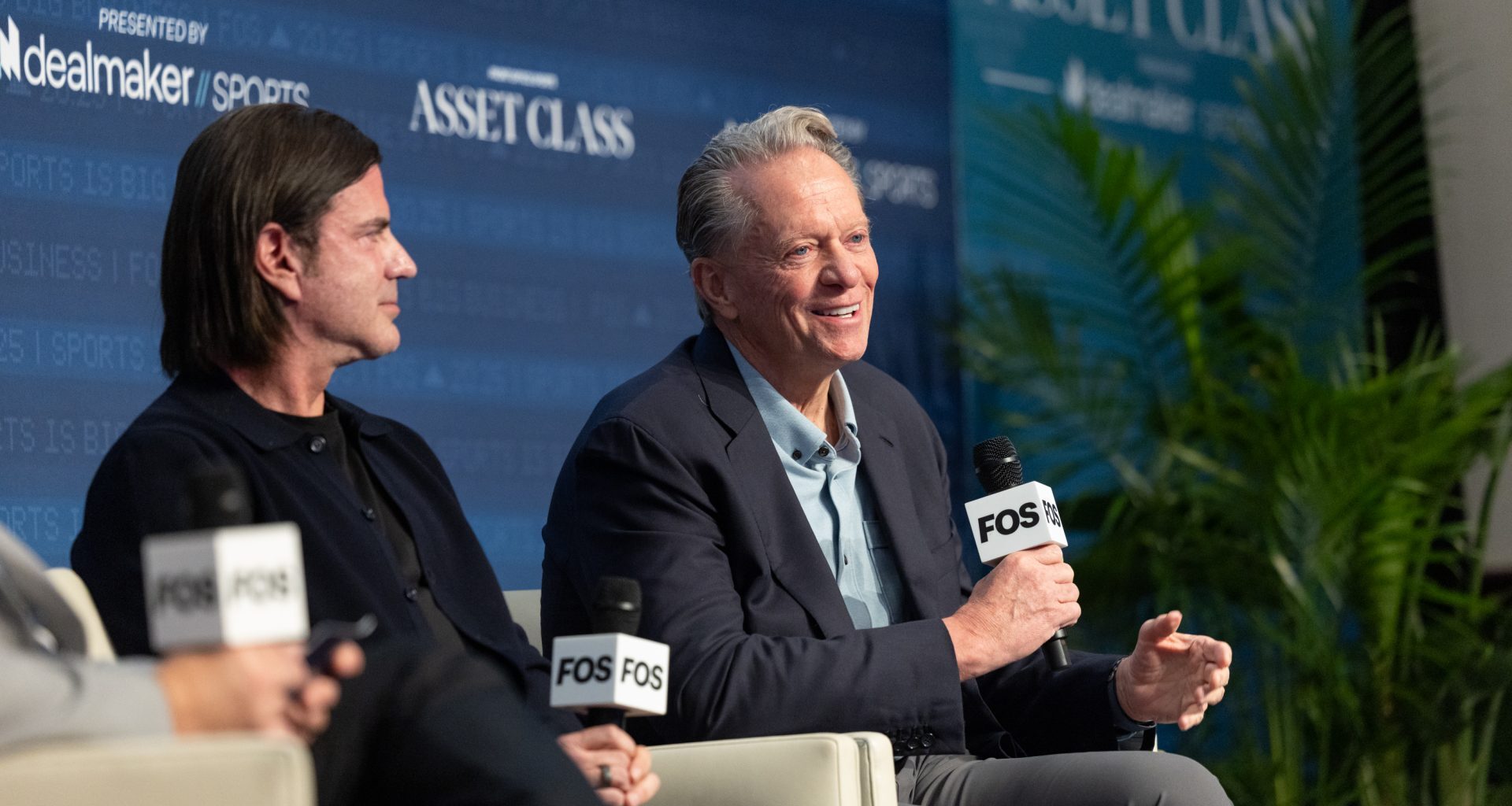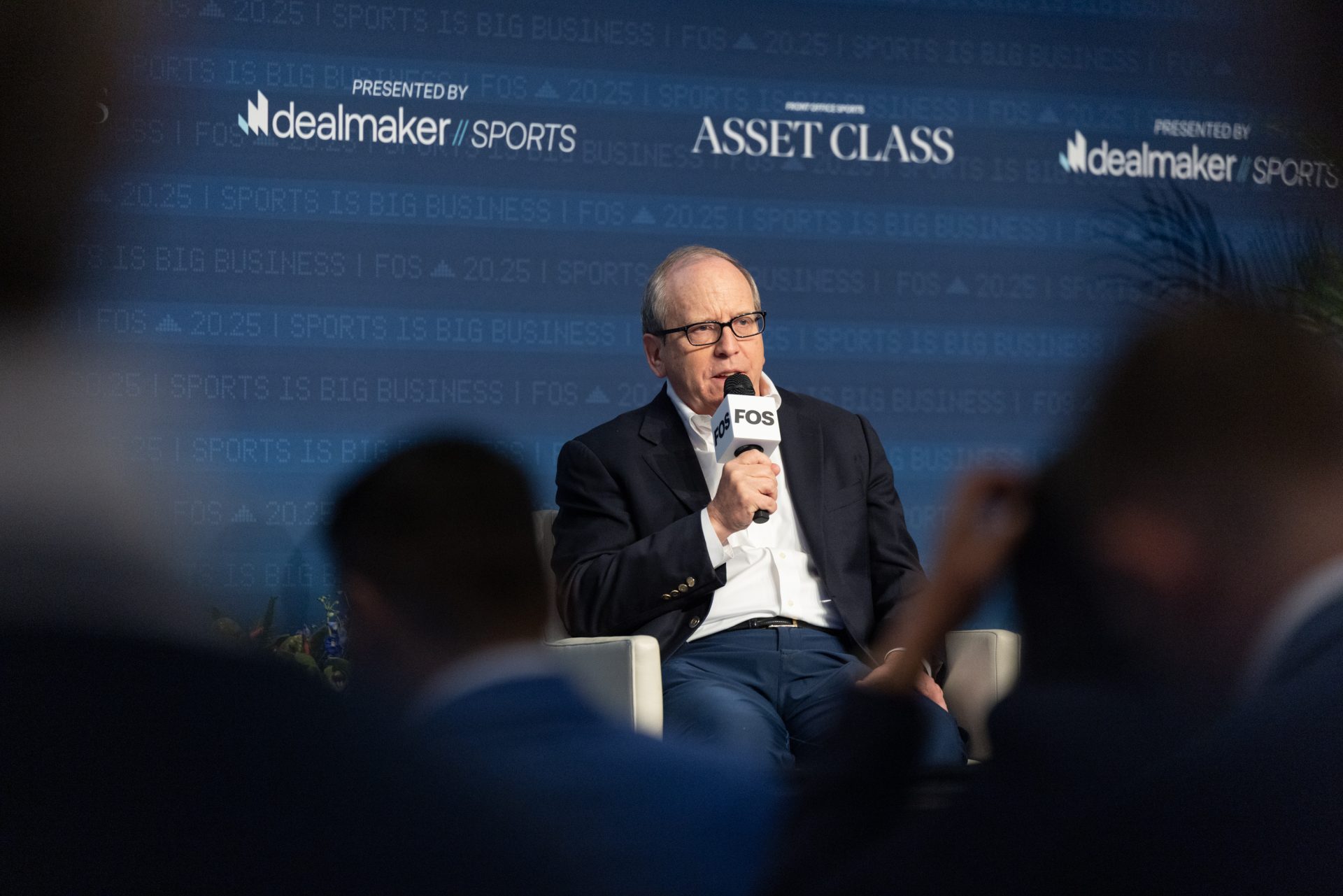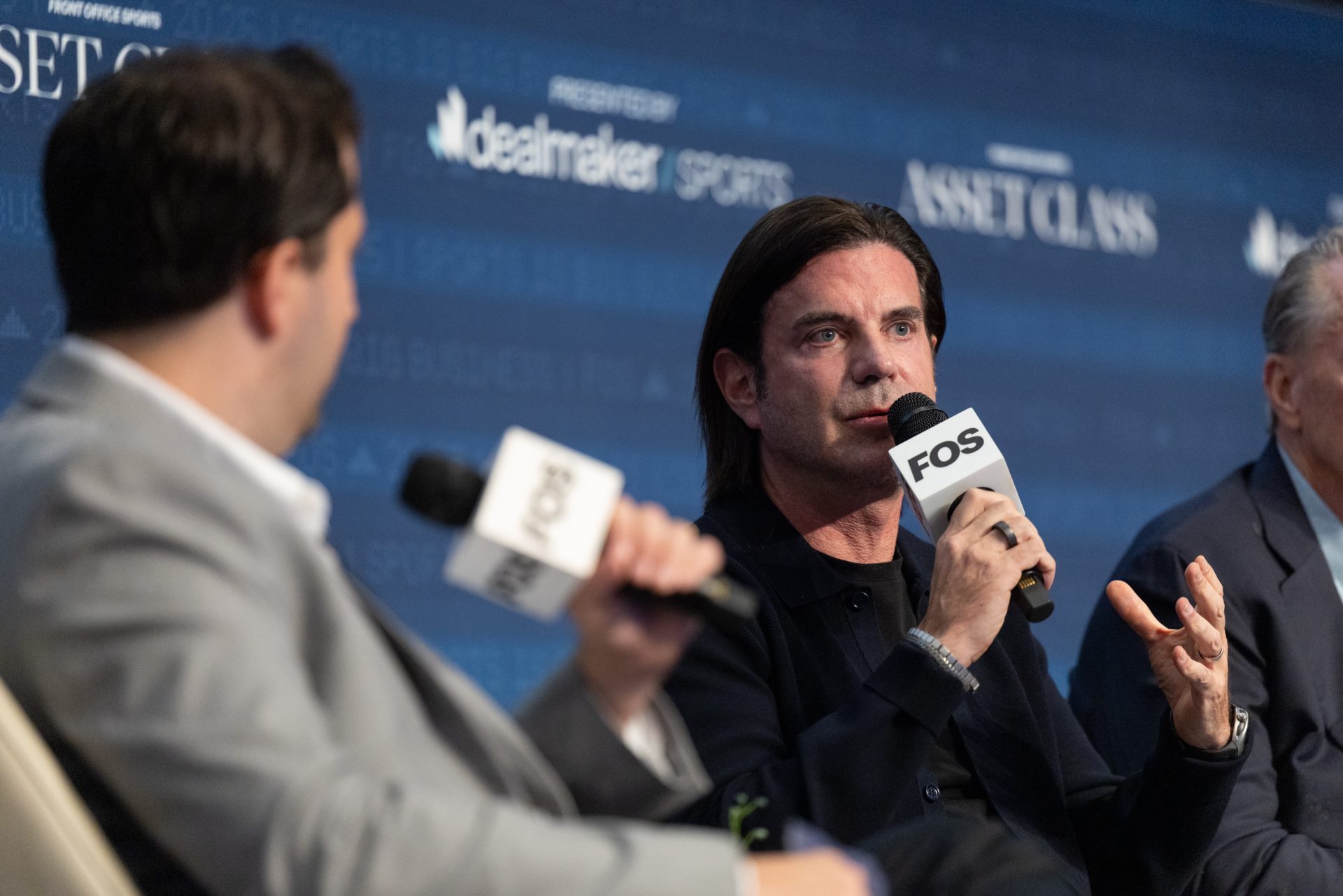Asset Class came to life Thursday at the New York Stock Exchange, where Front Office Sports convened Islanders owner Jon Ledecky, 76ers and Devils co-owner David Adelman, former Knicks president Dave Checketts, and more. This edition recaps the stand-out moments, from never-before-heard stories of the 1990s NBA to Ledecky fielding calls from crypto bros eager to buy into his team.
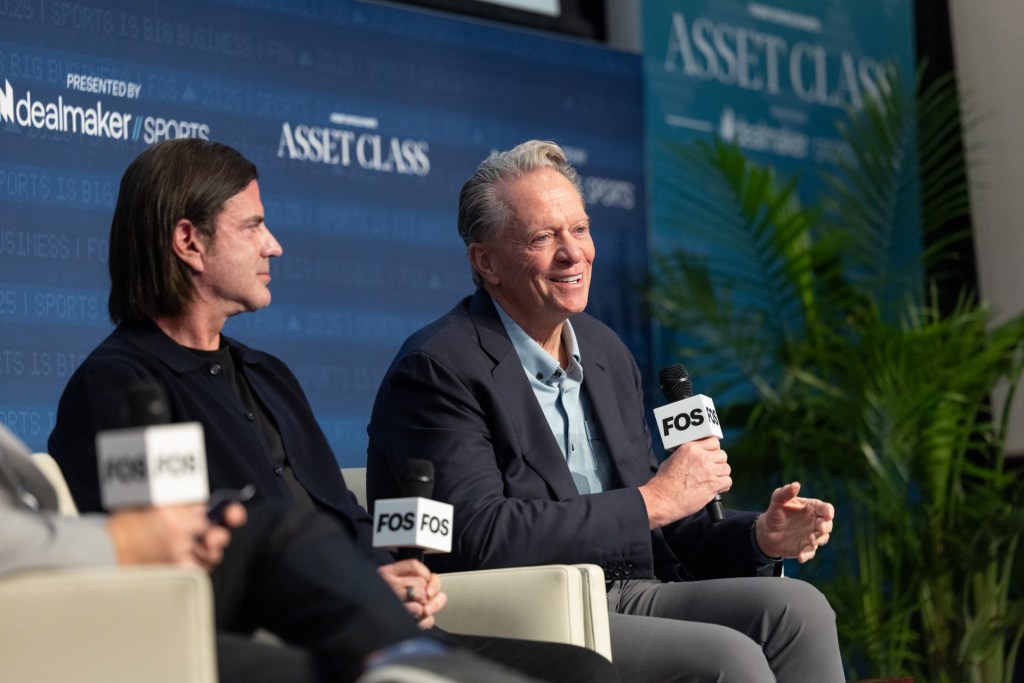
Nicole Pereira Photography
Before Kawhi Leonard and the Clippers, the Knicks were accused of circumventing the salary cap to sign center Herb Williams to back up Patrick Ewing in the 1990s. Back then, New York survived the investigation unscathed.
As the NBA season draws near, the allegation that Clippers owner Steve Ballmer circumvented the salary cap in order to pay Leonard more than he was allowed has dominated headlines. The claim, first reported by journalist Pablo Torre, is that there were shady dealings through a $28 million “no-show” endorsement deal with green-banking company Aspiration, a former team sponsor that is now bankrupt. Commissioner Adam Silver has tapped law firm Wachtell Lipton to lead an investigation, which may take months.
The allegations echo past NBA cap controversies. Punishments can range depending on the severity of the infraction, and can include fines, loss of draft picks, and even voiding of player contracts. Perhaps the most notable example happened in October 2000, when the Timberwolves lost five first-round picks and were fined $3.5 million for reaching a deal with forward Joe Smith to circumvent the salary cap.
In 1993, Silver’s predecessor, the late David Stern, felt certain he had caught the Knicks—and team president Dave Checketts—circumventing the cap when they signed Williams to a one-year deal worth around $1.5 million. That was roughly three times his previous salary under the two-year contract he’d signed with the Knicks that included a player option to opt out.
“Immediately when we announced it, David Stern called me,” Checketts said Thursday at the inaugural Front Office Sports Asset Class summit in New York.
“I’ll leave the expletives out, [but] he said, ‘I’m gonna haul you in for this. Everybody knows what you just did. You circumvented the cap … you didn’t even try to hide it,’” Checketts said.
Checketts admits the Knicks valued Williams highly, and that when he signed the first contract, the team didn’t have the cap space to pay Williams his market value of more than $1 million a year. So they signed him to a two-year deal worth somewhere around $400,000 annually, with an opt-out clause.
After Williams exercised the option, the Knicks promptly signed him for roughly $1.5 million for Year 2—enough to satisfy both player and team, but enough to catch David Stern’s attention. From Day 1, Checketts maintained innocence.
Before Kawhi Leonard and the Clippers, the Knicks were accused of circumventing the salary cap to sign Herb Williams in the 1990s.
Former Knicks president Dave Checketts tells the story of what really happened.
Presented by @Dealmakertech pic.twitter.com/s2WlpoRL5e
— Front Office Sports (@FOS) October 16, 2025
“I said, ‘I have nothing to hide,’” Checketts remembers. “He said, ‘We’re gonna investigate you, so get ready.’”
Stern hired a retired District Court judge and a “very tough” lawyer, who came in and interviewed Checketts, the team’s general manager Ernie Grunfeld, and head coach Pat Riley.
Checketts says he told the investigators “the New York Knicks take care of their players,” and that they wouldn’t find anything, “written or verbal,” proving any funny business.
Ultimately, the judge had to go back to Stern and say “‘we’ve got nothing,’” Checketts said.
“I guess that was circumventing the cap in Stern’s world,” he said. “But this story in L.A. is a completely different number, a completely different story.”
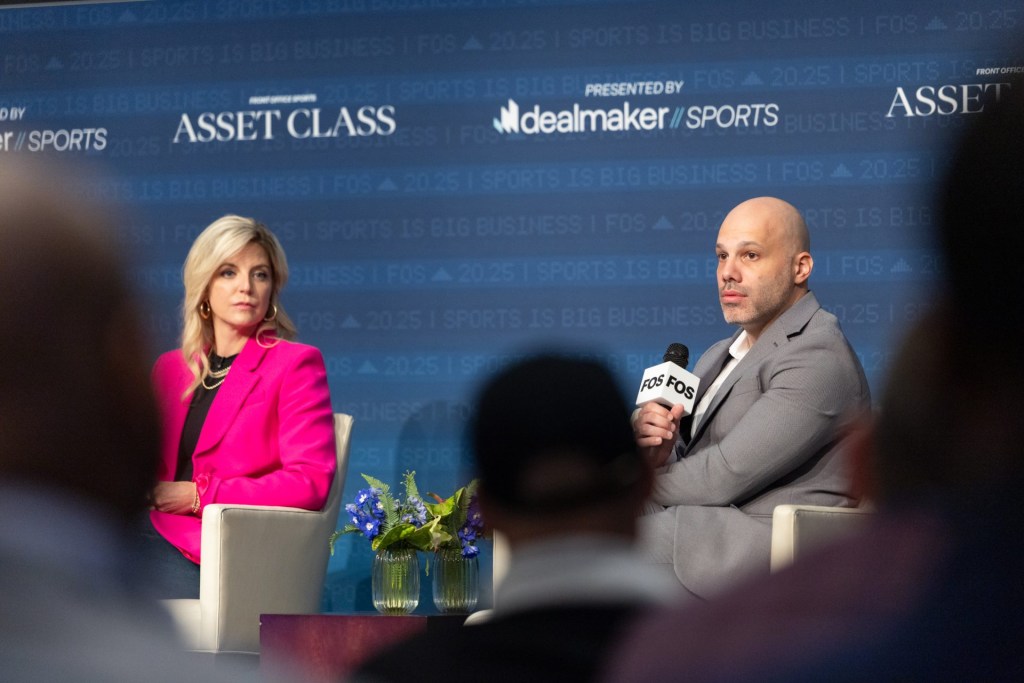
Nicole Pereira Photography
Experts agree that college sports will start receiving major infusions of private capital, but while the opportunity is massive, the challenges are just as big.
The sentiment that college sports is on the precipice of entering into private-capital deals was shared by speakers across multiple panels at the inaugural Front Office Sports Asset Class summit in New York. The idea should come as no surprise. For weeks, there’s been a drip-drop of reporting about a potential private-capital deal for the Big Ten, although University of Michigan board members are opposed. Meanwhile, the Big 12 explored potential private-equity deals earlier this year, although for now that conference has hit the brakes.
According to Jason Belzer of Sequence Equity, “College sports is the next frontier.”
“If this Big Ten [deal] happens, it’s gonna open up the floodgates,” he said at the summit. “But I think the floodgates are gonna open up regardless.”
That’s because there are numerous schools and conferences that “realize they need help,” and a ton of private capital “waiting on the sidelines,” he said.
During Belzer’s panel, all three participants—Belzer, Kevin LaForce of RedBird Capital Partners, and DealMaker cofounder and CEO Rebecca Kacaba—picked college sports as their “hot buy.”
Still, despite the fact that both sides want it to happen, it’s been slow going. Not only that, but the narrative has shifted. At first, the idea was that there would be private-equity investments into college sports, but the word “equity” has recently been taken out of the equation.
“I like to joke, ‘Private credit is entering the chat,’” Kim Smith, chief capital formation officer at Andalusian Credit Partners, said during a different panel.
Experts agree that private-credit deals—which wouldn’t involve the capital provider taking an equity stake in the school or conference—are the cleanest way for private capital to enter college sports. Such deals are structured as loans, with investors providing financing, collecting interest, and getting repaid. The arrangements tend to carry less risk and fewer restrictions than equity, although returns are not as compelling, since lenders don’t share as much in the big upside of college sports’ commercial growth.
“The potential to lend to these universities, there’s tremendous opportunity for college sports, and even more so for the athletes,” Smith said, alluding to NIL (name, image, and likeness) deals her firm has been exploring.
Any infusion of private capital comes with risk, however, and there are sensitivities about academic institutions getting into bed with firms. When it comes to deals involving conferences, as opposed to individual schools, several factors can slow down the process. With the Big Ten, for example, there are schools at the top tier, like Ohio State, Penn State, and Michigan, which are “revenue-producing entities” that don’t necessarily need capital infusions, while on the other end of the spectrum, the Big Ten includes Rutgers, Maryland, and Purdue, all of which could use the money, Belzer said.
For schools like Ohio State and Michigan, “it’s like the Dallas Cowboys taking on money. What are they gonna do with it?” Belzer said.
While questions remain, the theme was clear: Private capital is coming for college sports. It’s just a matter of when, and how.
Veteran sports executive Dave Checketts, who is trying to raise $1.2 billion for a new fund focused on sports, said during one of the other panels that college sports is among the primary areas he wants to be in. He expects that a deal of some kind will get done with the Big Ten, although he acknowledged that “what’s happening in college sports is complicated.”
“I expect that we’ll be in college sports,” Checketts said. “It’s too big of an opportunity.”
Editors’ note: RedBird IMI, in which RedBird Capital Partners is a joint venture partner, is the primary investor in Front Office Sports.
“The most important thing is the CBA and to have labor peace. … What you’re seeing now in the WNBA, spilling into the public view, is no bueno. It’s not a good idea.”
—Jonathan Ledecky, Islanders co-owner
“Why sports team valuations have gone up so much I ascribe to the fact that there are 400 to 500 billionaires a year being minted in the United States; one only has to look at the AI uplift right now and the crypto bros. Every week my phone rings with, ‘Hey, I’d like to buy your team.’ And these guys and gals are in their 20s and 30s. I go, ‘That’s really interesting.’ ‘Yeah, I just crushed it on crypto, I’m worth two and a half billion dollars, but nobody knows who I am. So I figured if I buy into a sports team, people will know I’m rich.’ That’s basically how the conversation goes. … That’s why asset prices are going up.”
—Jonathan Ledecky
“College is something like we’ve never seen before. I think it’s a story that’s going to be playing out for the foreseeable future, not the next two or three years, so if you’re investing in college, you’re going to have to be patient. But it is extraordinarily exciting.”
—Kevin LaForce, RedBird Capital Partners managing director
“I’d be a janitor for the Savannah Bananas. It’ll be a $100 billion franchise. … I would literally go work there.”
—Greg Bettinelli, The Chernin Group partner
“If you’re a dad out there, watch women’s sports with your daughter. Get them tuned in. Show them that you care, and then they’ll go and watch women’s sports in the Olympics.”
—Kristen Faulkner, two-time Olympic gold medal cyclist
“What percent of Valkyries season-ticket holders do you think are Golden State Warriors ticket holders? It’s four percent. And they’ve sold out every game and just crushed it. … We see something similar in Philadelphia. There’s just been this great rising movement, the support we’ve had as a city when we went after [a WNBA expansion team] was really remarkable.”
—David Adelman, 76ers, Devils co-owner
“And by the way, the Valkyries’ gate is higher than ten NBA teams.”
—Dave Checketts, former Knicks, Jazz president
David Adelman, part-owner of the 76ers and Devils, is adding a new sport to his portfolio: pro Wiffle ball. He said during Thursday’s Asset Class summit that he’ll own the Philadelphia team that’s part of the league unveiled earlier this week by Gary Vaynerchuk. The league, which Adelman described as “bite-sized affordable,” will begin with tournaments around the U.S.
President Donald Trump’s golf course in Aberdeen, Scotland, posted a full-year loss of $1.26 million (£937,693), marking its 13th straight year of losses—although it was less than last year’s loss of $1.92 million (£1.43 million). The property, which Trump acquired in 2006, did increase revenue, from $5.04 million (£3.75 million) in 2023 to $6.02 million (£4.48 million) last year.
Jazz forward Kevin Love is investing in Shift Naturals, which makes hemp-infused drinks and gummies. He’s investing alongside consumer-focused investor “community” The Angel Group, whose portfolio also includes Garage Beer—the light-beer company co-owned by Travis and Jason Kelce that was recently valued at about $200 million.
Florida-based Xude Hospitality has acquired Sanibel Island Golf Club and is planning an extensive renovation. The club, located off the southwest coast of Florida, features a 6,400-yard course. Xude owns more than 50 clubs across multiple stakes, including Arizona, Colorado, and California.
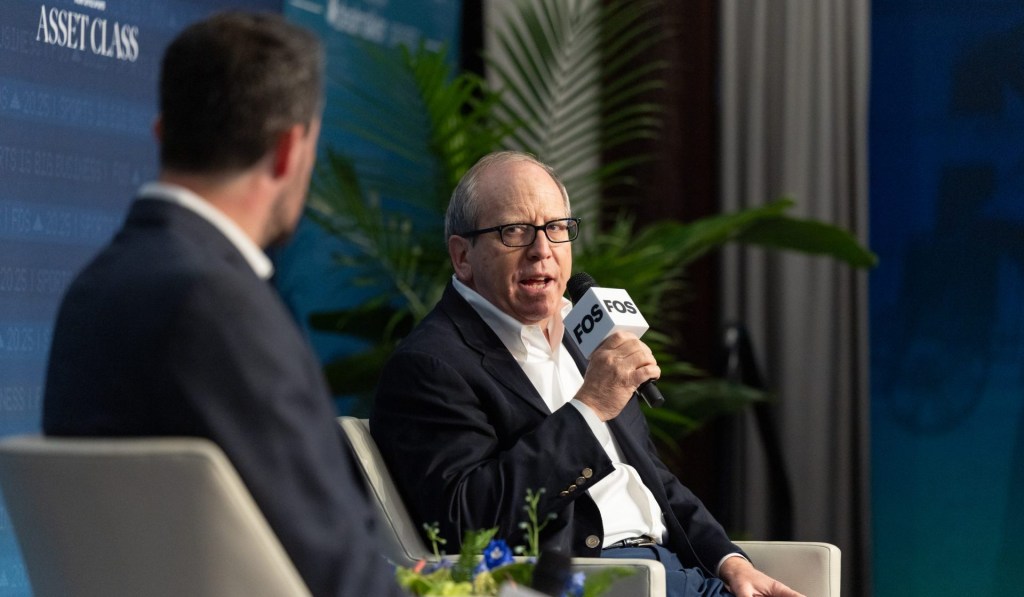 The buy-in price for the league will more than triple.
The buy-in price for the league will more than triple. 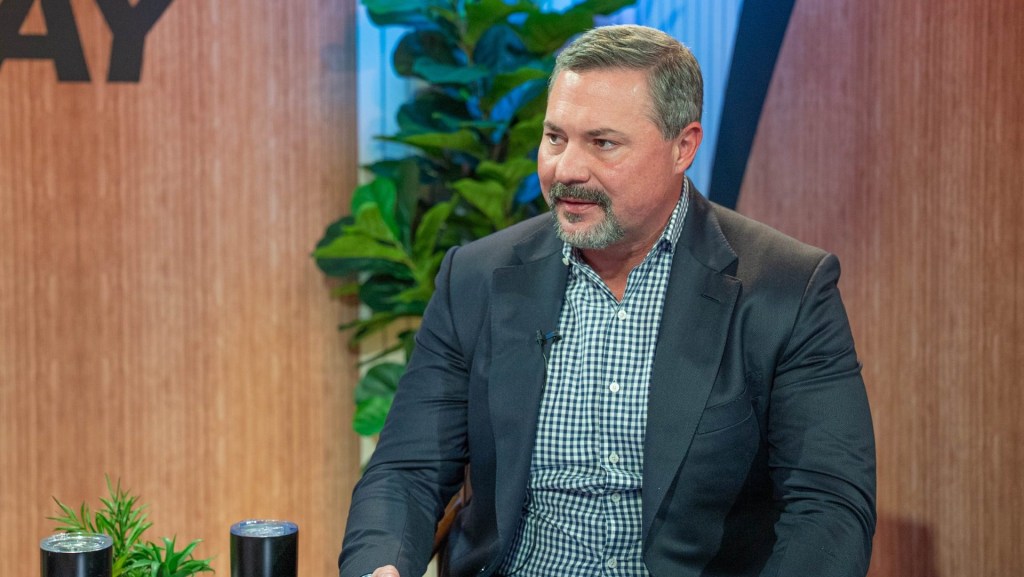 Campbell said the concept goes against “all the laws of finance.”
Campbell said the concept goes against “all the laws of finance.”
Privacy Manager

